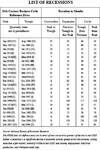It is common knowledge that the 2008 recession was created by a meltdown which affected the housing market worldwide and resulted in the greatest recession and wealth destruction event since the Great Depression of 1929.

But what is less known is how exotic financial instruments used by the world’s hedge funds helped create and accelerate this wealth destruction because their strategies, complex financial instruments, and unquestioning market investors all bought into a strategy devoid of risk measures that were further complicated by illiquidity in the event of an emergency.
Add to this the blind eye turned by the world’s financial market regulators and the need of average homeowners to seek wealth creation through their most valuable asset (their homes and home equity to fund borrowing to fuel consumption—and we had the perfect storm for a worldwide, severe global wealth destruction-event, which is still reverberating in the U.S. about six long years after it started.
Hedge Fund Definition
“Hedge funds can be defined as eclectic investment pools, organized as private partnerships and often resident offshore for tax and regulatory purposes, whose managers are paid on a fee-for-performance basis. Their prospectuses and legal status place few restrictions on their portfolios and transactions. Consequently, their principal partners and managers are free to flexibly use a variety of investment techniques, including short positions, transactions in derivative securities, and leverage, to raise returns and cushion risk.”
Source: “Hedge Funds with Quantitative Trading Styles,” Dr. Gunther Franke, University of Konstanz; Dr. Richard Olsen, Olsen Group; Dr. Winifred Pohlmeier, University of Konstanz, (paper May, 6, 2001)
First some background: The 2008 recession was initiated by the failures of complex financial instruments created and managed by the world’s largest hedge funds. By regulatory-design and extensive lobbying, these funds are not regulated. In addition to their huge presence in Washington lobbying circles (estimated hedge fund lobbying budget: nearly $40 million during the 2012 election cycle — more than double their contributions during the 2008 election cycle, according to Open Secrets), hedge funds have tremendous market power via leverage and inordinate power by working in thinly-traded instruments (both synthetic and market-traded.)
Among the exotic strategies and instruments, which can be deployed and traded without regulatory scrutiny and oversight (see hedge fund definition) are: event-driven, merger arbitrage, distressed securities, long-short, relative value, fixed-income, quantitative, convertible arb, mortgage-backed securities, tactical trading, discretionary and systematic. That describes the scope of the main strategies and instruments used by hedge funds.
Specific Causes of the Debacle
Here are some specifics about the characteristics of mortgage-backed securities (MBS), which played an inordinate role in the catastrophic and preventable global financial event of 2008:
–MBS trading includes inter-bank arbitrage, (long MBS and short U.S. Treasuries, combined with arbitrage (such as buying mortgage pass-throughs and selling collateralized mortgage obligations (CMOs);
–The MBS strategy meets the criteria of arbitrageurs since pricing discrepancies between MBS remain in the market because they are complex and cannot be re-priced easily due tot heir complexity;
–According to a paper, Hedge Funds with Quantitative Trading Styles, (cited above), the main drivers of returns in this MBS strategy are their complexity and “inherent market inefficiencies” because home owners based on “non-financial reasons.” These reasons would be the need to borrow based on rising valuations (often unrealized and on paper only), and the powerful need to be an efficient consumer in a capitalist society.
In other terms, the quest for extreme profits was based on complexity and irrationality of key market participants, both of which require inordinate risk-management tools, oversight and a great understanding of irrational consumer behavior. Good luck with all that.
–Institutional investors played a huge role too, by requesting a portion of the hedged CMO tranches. These tranches usually traded at a premium compared to unhedged, more risky tranches which traded at a discount.
–Pricing was also affected because there were fewer buyers for the wide variety of MBS variations based on prepayment schedules and types and levels of hedging.
–The risk levels of CMO trading were all affected by illiquidity and prepayment penalties.
When Exotic Strategies Fall Over the Cliff
All of these factors culminated in the tipping point in this debacle. This was accelerated and fueled by the fickle nature of the real estate market, largely complicated by the irrationality of homeowners and the profit-driven motives of hedge funds and their willing and non-critical investors.

Details about when and what actually marketed the beginning and cause of the crash is best left to others with more analytical resources, but for the average homeowner and investor, this wealth destruction event, the ever-present bubble in the central bank managed economies worldwide, is certainly to recur again. Just look at this list of recessions and their underlying causes (most were a combination of bubbles and inaccurate monetary policies) and we can see that wealth destruction is as much a part of investing as the endless discussions about asset allocation, active vs. passive management and small-cap vs. large-cap.
What we can be sure of is that another wealth destruction event is in our future.










